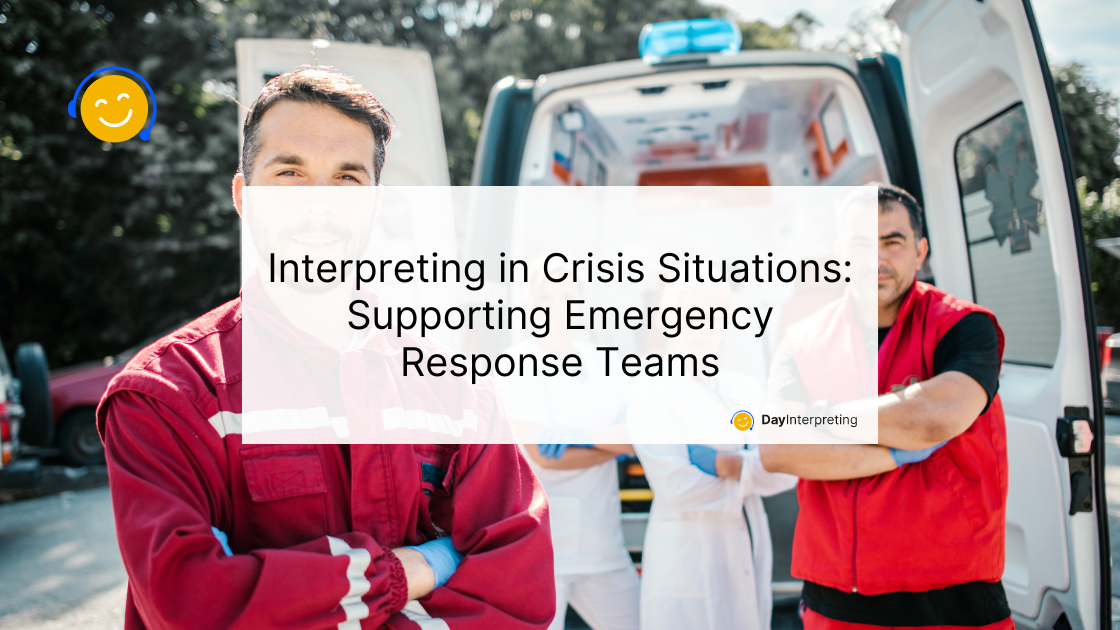In the fast-paced world of emergency response, effective communication can be a matter of life and death. Interpreting in crisis situations is an invaluable service. Imagine a scenario where a medical team rushes to aid earthquake survivors in a foreign country. They encounter a language barrier that hinders their ability to understand the victims’ needs and provide critical care promptly. This is where skilled interpreters step in as invaluable assets, bridging linguistic gaps and ensuring seamless communication between responders and those in need.
The Vital Role of Interpreters in Crisis Response
Interpreters play a crucial role in crisis situations by facilitating communication between emergency response teams and individuals affected by disasters or emergencies. Their ability to convey information accurately in real-time enables responders to assess situations, provide medical care, and coordinate relief efforts effectively. In times of crisis, every second counts, making the role of interpreters indispensable.
Challenges Faced by Interpreters in Crisis Scenarios
While interpreters are essential, they face unique challenges in crisis settings. These challenges include:
- High-Stress Environment: Crisis situations are often chaotic and emotionally charged, requiring interpreters to remain calm and focused under pressure.
- Technical Vocabulary: Interpreting technical terms related to medical procedures, disaster management, or security protocols accurately poses a significant challenge.
- Cultural Sensitivity: Interpreters must navigate cultural nuances and sensitivities, ensuring that messages are conveyed respectfully and accurately.
- Limited Resources: In some crisis scenarios, interpreters may face resource constraints such as limited access to technology or support services.
Skills and Qualities of Effective Crisis Interpreters
To excel in crisis response settings, interpreters must possess a unique set of skills and qualities:
- Language Proficiency: Mastery of languages involved in the crisis response is fundamental.
- Cultural Competence: Understanding cultural norms and practices helps interpreters navigate sensitive conversations effectively.
- Adaptability: The ability to adapt to rapidly changing situations and contexts is crucial.
- Emotional Resilience: Interpreters must manage stress and emotions to maintain clear communication.
- Technical Knowledge: Familiarity with emergency response protocols and terminology enhances interpretation accuracy.
Best Practices for Interpreting in Crisis Situations
To ensure effective communication and support during crises, interpreters and response teams should adhere to best practices:
- Preparation: Interpreters should familiarize themselves with relevant terminology and protocols before deployment.
- Team Collaboration: Close collaboration between interpreters and response teams promotes efficient communication and coordination.
- Continuous Training: Ongoing training and skill development help interpreters stay updated with best practices and emerging challenges.
- Technology Utilization: Leveraging technology such as translation apps or communication devices enhances interpretation capabilities in challenging environments.
The Impact of Quality Interpretation on Crisis Response
Quality interpretation in crisis situations can significantly affect outcomes. Clear and accurate communication enables responders to assess needs accurately, deliver timely assistance, and ensure the safety and well-being of affected individuals. By supporting effective communication, interpreters play a vital role in mitigating the impact of crises and saving lives.
Final Thoughts
The role of interpreters in emergency response cannot be overstated. Their ability to bridge linguistic barriers and facilitate communication is a cornerstone of effective crisis management. As we continue to navigate complex challenges globally, skilled interpreters are important in supporting emergency response teams, ensuring that help reaches those in need swiftly and effectively.





0 Comments